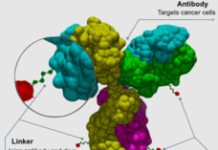COVID-19 has plagued the entire world over the last year or so, wreaking havoc everywhere it can. Many have died, and even more have fallen gravely ill, some suffering lasting health effects. However, as they say, there’s a silver lining to every cloud.
One of those silver linings happened to Jacqui Matthew, a woman who contracted the virus from her son, who got it from a classmate, who attended a well-known “super-spreading” wedding event in Stanwell Tops in Australia toward the beginning of the pandemic.
Things didn’t start out so “silver” for the 48-year-old teacher. While her son and daughter only got a sore throat from the virus, Jacqui suffered from symptoms similar to a “really heavy cold,” including trouble breathing.

Article continues below
Our Featured Programs
See how we’re making a difference for People, Pets, and the Planet and how you can get involved!
“All my bones were really heavy, like I just felt really, really off,” she recalls. “There were days [my husband] had to feed me and wash me. I was just so sick.”
Jacqui and her family spent 29 days in lockdown waiting for her symptoms to subside and her test results to come back negative. But her symptoms didn’t completely subside after she was done with COVID.
“The worst was the breathing — even after I’d recovered from everything, I couldn’t catch my breath,” she says. “I kept having COVID tests, and I definitely didn’t have it anymore, but I hadn’t quite recovered. I just couldn’t get my lungs working properly.”

Jacqui’s doctor decided to order an MRI to check for damage in her lungs. Her local radiology center wouldn’t accept her because she’d recently had COVID, but she eventually managed to get in at Gosford Hospital on New South Wales’s Central Coast.
“Thank goodness they did,” says Jacqui, “because their technician said, ‘There’s nothing wrong with the lungs COVID-wise, but there’s something here that needs investigating.’”
The scan had revealed a tumor, which turned out to be an aggressive form of breast cancer. Because Jacqui was a little younger than the standard age of 50 at which many women begin getting regular mammograms, her cancer would likely have continued undetected for a while if it hadn’t shown up on the MRI scan.

“My doctor said if we had left it another couple of years, it would have been a very different story,” she says. “COVID almost literally saved my life. I’ve no doubt in my mind at all. There’s no way I would have had a mammogram. I wouldn’t have picked it up. It would have been another couple of years before I would have even thought about it — if I thought about it.”
Two days after her diagnosis, Jacqui spent her 49th birthday in surgery, followed by another surgery to remove more cancer. Then she underwent four rounds of chemotherapy, followed by radiation treatment.
Jacqui is now considered to be in remission. It’s been a rough year, but she considers herself lucky that she caught it when she did, while it was still in stage I, and made it to the other side of treatment.

And, in a strangely symmetrical turn of events, being treated for cancer had a COVID-related silver lining, just as getting COVID had had a cancer-related silver lining. Jacqui says the breathing exercises she was taught to do for her radiation treatment helped get her COVID-related breathing difficulties under control.
“Sort of like COVID detected cancer, but then the cancer treatment helped COVID,” Jacqui says. “They sort of went hand in hand.”
According to the Department of Health, more than 75 percent of breast cancers occur between the ages of 50 and 74, which is why mammograms before the age of 50 are not standard in many parts of the world. Many women between the ages of 40 and 49 do not benefit from regular mammograms.
However, there’s always that small percentage that will get cancer during those years or even younger. This is why it’s important to do regular self-exams at home and to talk to your doctor if anything seems different or “off” about either of your breasts.
![]()
Provide Mammograms
Support those fighting Breast Cancer at The Breast Cancer Site for free! →
Whizzco Source








